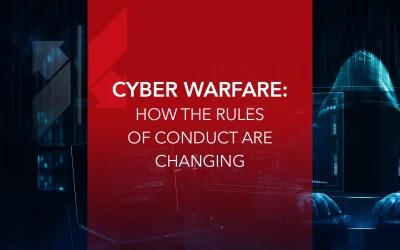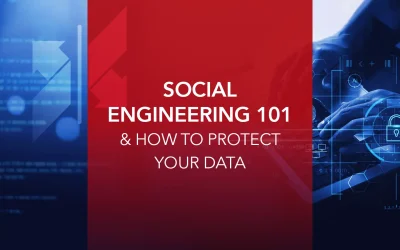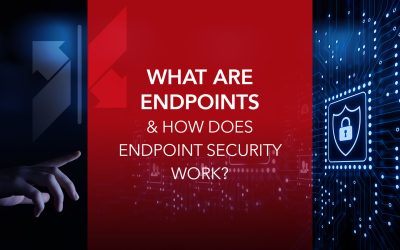Last updated August 18, 2022
Summary:
- MDR and EDR are two different approaches to protecting an organization’s digital assets (including data and systems).
- EDR (Endpoint Detection and Response) uses software to respond to threats targeting devices that can access a network. Using EDR is like buying an alarm system for your home.
- MDR (Managed Detection and Response) uses people to monitor your network at all times with specialized tools and respond to threats. It’s like hiring a security company to protect your property.
- EDR is usually part of good MDR, which is part of the SOCaaS (security operations center as a service) ecosystem offered by VirtualArmor.
The GoDaddy attack last November once again highlighted how vulnerable our digital systems can be, prompting many organizations to re-think their current cybersecurity posture in the wake of this troubling, and escalating, trend. Though every organization brings with it unique security considerations, there are a few strategies and policies that all organizations should consider implementing.
The goal of cybersecurity is to safeguard your organization’s digital assets, including data and systems. Both EDR and MDR work to achieve this goal in different ways, and a good strategy will rely on both approaches to create a robust, more comprehensive cybersecurity strategy.

EDR: A Software-Focused Approach to Cybersecurity
EDR (endpoint detection and response) is a software-based cybersecurity approach designed to detect and respond to endpoint threats. Endpoints refer to any remote computing devices that are able to connect with your network, including computers, smartphones, tablets, servers, and IoT devices. Endpoints act like the doorways to your network, making them key points of entry for cybercriminals. As such, these portions of your network are vulnerable and require special security considerations.
Good EDR is Reactive…
EDR is designed to safeguard these endpoints by using both tools and solutions to detect and address threats to your endpoints and hosts (such as networks). Should an endpoint or host become infected with malware or otherwise compromised, the software can also quarantine the affected systems or endpoints to help slow or stop the attack. EDR is incredibly valuable because it can detect advanced threats without relying on behavioral patterns or malware signatures like anti-virus software does.
EDR can also trigger an adaptive response to a threat (much like your immune system responding to an infection), allowing your system to learn from the situation and adjust its response accordingly. This approach not only helps contain the situation at hand but also helps improve your threat responses moving forward.
… But Also Proactive
In addition to learning from past incidents, good EDR also takes a proactive approach by seeking out new potential threats before they become actual threats. EDR is also able to gather data about the overall health of your network and record network activity.
Should an attacker manage to slip past your defenses, this treasure trove of data gathered before, during, and after the attack will prove invaluable for identifying the root cause of the attack so that steps can be taken to improve your security moving forward.

MDR: A People-Focused Approach to Cybersecurity
While EDR is a tool-based approach, MDR is a people-using-tools-based approach. MDR (managed detection and response) is a service that monitors your network 24/7/365 in order to detect, triage, and respond to cybersecurity threats.
EDR vs MDR
EDR works like a security system, setting off an alarm if a window is broken or a door is forced open in an attempt to scare off the intruder and alert the business owner that something is amiss. Unfortunately, even if the security system alerts the business owner, the owner may not immediately realize something is wrong.
After all, she is a busy woman with a business to run. She is also only one person: if the break-in happens while she is asleep or in a meeting, she may not see the alert on her phone until she wakes up or the meeting has ended.
On the other hand, MDR is more like hiring a security guard: You already have an expert on-site, keeping an eye out for any suspicious activity. Should a break-in occur, the security guard can respond right away. That doesn’t mean that alarm systems aren’t useful, but they are more useful if you have a security guard keeping an eye on things as well.
MDR is one piece of the SOCaaS (security operations center as a service) ecosystem, helping create a holistic, turnkey solution to continuously monitor threats across your network.
Good MDR Incorporates EDR
MDR solutions are empowered by EDR solutions, much like how a security guard is better able to perform their job because of an alarm system. MDR analysts and other cybersecurity experts are able to use the data gathered by the EDR system, as well as the abilities it provides, to more easily assess the threat and respond swiftly and appropriately.
By leveraging EDR systems, your cybersecurity team can use the data the system has collected to better prioritize threats (such as identifying which users are logged in and which systems and files are being targeted) and move quickly to shut down impacted systems or institute quarantines to contain the threat and minimize or even avoid further damage.
MDR is a particularly effective approach for small and medium-sized organizations, which are less likely to have in-house cybersecurity teams to manage and respond to threats identified by their EDR systems.
Many managed security services providers offer a variety of services that can be mixed and matched to suit your needs, whether you are looking to fully outsource your cybersecurity needs or simply augment your existing in-house security team.
Looking to Improve Your Security Posture for 2022? VirtualArmour is Here to Help!
Not everyone is a cybersecurity expert, and that’s okay. No matter your cybersecurity needs, VirtualArmour’s team of experts is always here to help. In addition to MDR, we also offer:
VirtualArmour also offers tailored services on an à la carte basis, allowing you to pick and choose the services your organization requires to create your own premium services package, essential services package, or tailored one-time expert consult. With offices in both Denver, Colorado, and Middlesbrough, England, we are able to offer live, 24/7/365 monitoring as well as industry-leading response times.
We have extensive experience working with a variety of highly-specialized industries, including energy, finance, healthcare, and retail, and are well-versed in the unique security and IT challenges faced by service providers.
For more information about MDR, or to get started designing your custom MDR solution, please contact our team today.







